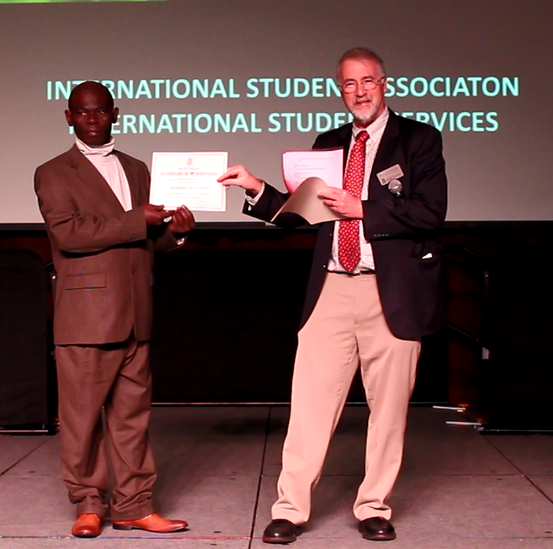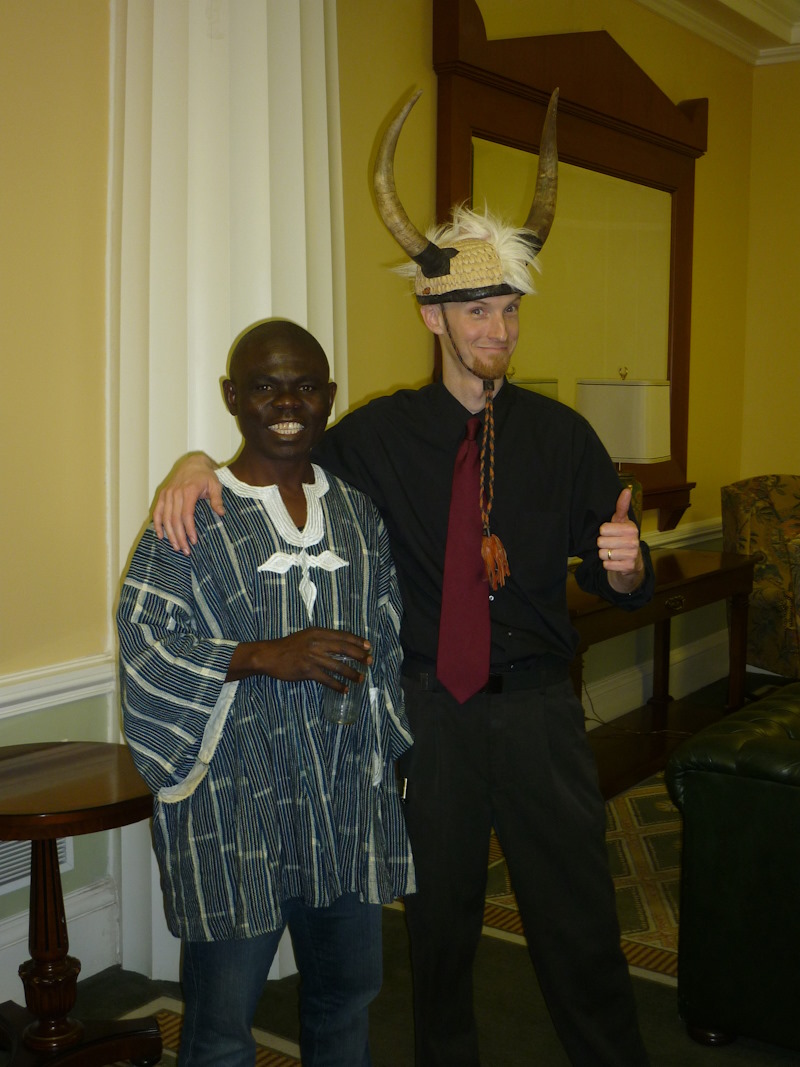May 31, 2024 | Erin Bluvas, bluvase@sc.edu
Nearly a decade after his passing, Chris Aluah continues to make an impact. Dedicated to sharing his work with the world, his health promotion, education, and behavior (HPEB) collaborators* have successfully published findings from his dissertation research. The paper, which appeared in the March 2024 issue of Social Work in Public Health, is a fitting tribute to his life’s work related to HIV stigma.

Aluah’s journey began in his native Ghana, where he became passionate about mitigating the various types of stigma that can negatively affect health and well-being. Leveraging his creative gifts, he studied theatre and English at the University of Ghana. Aluah also taught high school students and worked with the Navrongo Health Research Center and co-founded the Youth Harvest Foundation before he decided to pursue graduate studies at USC, where his sister, Helen Yitah, had obtained her doctoral degree.
As a student in the Master of Social Work and Master of Public Health in HPEB combination degree program, Aluah continued building his knowledge and skills. He immediately connected with HPEB adjunct associate professor Deborah Billings, who shared his interest in addressing abortion-related stigma as well as in using theater to engage communities in discussions about HIV.
“Chris was an exceptional student but, beyond that, an innovator, an activist and a disciplined researcher,” says Billings, who was thrilled when Aluah decided to continue his studies with the Ph.D. in HPEB program. “His work was rigorous, insightful and important.”
During his doctoral studies, Aluah worked with local actors to create a theatrical production based on interviews and focus groups with African American professionals serving people living with HIV in Richland County. He was also awarded a SPARC (Support to Promote Advancement of Research and Creativity) graduate research grant from the Office of the Vice President for Research and was named a Research Fellow by USC’s Institute for African American Research to support his dissertation project.
This seminal study expanded his stigma research beyond patients to include the network of individuals who provide care for people living with HIV. Known as “courtesy stigma,” this phenomenon is an extension of discrimination to include social workers, clinicians, counselors, advocates and other professionals – regardless of their HIV status.
Through his research – which consisted of a review of 13 studies focused on courtesy stigma – Aluah found that the stigma experienced by members of the HIV workforce can negatively impact their own health and well-being as well as their ability to provide care. Researchers from these studies recommend various methods for combatting courtesy stigma, including organizational infrastructure to provide support, recruitment retention techniques, and education about HIV transmission and management.

“Understanding perceptions and experiences of courtesy stigma, as well as how it affects one’s personal life and professional practice, can provide specific points of intervention for the HIV workforce and protect gains made in HIV prevention, care and treatment,” Aluah’s co-authors wrote on his behalf. “The needs of professionals working with and on behalf of people living with HIV should be considered essential in ending the HIV epidemic.”
Aluah passed away near the end of his program and his return to Ghana where he would reunite with his family (his wife and three children) and the beloved country he was determined to help.
“He was going to return to Ghana to be with his family once again and to shake up public health in Ghana,” Billings says.
The following year, the HPEB department named their doctoral achievement award after Aluah. His legacy lives on through his impactful research as well as the department’s annual recognition of their top Ph.D. student, the Christopher Peter Aluah Outstanding Doctoral Student Award.
*Co-authors on the paper include Alyssa Robillard (Aluah’s doctoral advisor), Deborah Billings and Stacy Smallwood.